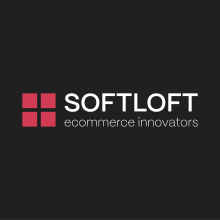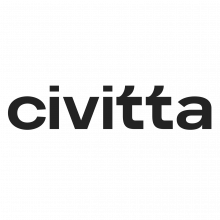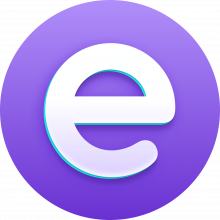
There are 234 Companies in Ukraine
that provide Angular Development Services!
IT is the most advanced and popular field in Ukraine. The Ukrainian IT industry is expected to reach $10 billion in value by 2021. The local software development community has grown by 27% in 2017 and currently employs over 185,000 IT specialists.
Discover Top IT Companies in Ukraine specialized in Angular and other related services. Find the best IT service providers for your projects.
Angular (formerly AngularJS) is a popular open-source web application framework maintained by Google and a community of developers. It's used for building dynamic, single-page web applications (SPAs) and web-based applications in general. Angular provides a structured and organized way to create complex web applications by extending HTML with additional features and enabling the development of interactive, responsive, and maintainable front-end web interfaces.
Handpicked companies • No obligation to hire • 100% risk-free
Featured Companies in Ukraine
This month, the following Angular Development companies managed to provide an outstanding service and support. It's worth taking a look.
Explore Top Angular Development Companies in Ukraine
That's a hell of a search to do now. Why not using the smart filters above? Last updated in: May, 2025
Technology with beauty and power. Software brilliance for visionary companies.
Services:
Fire Bee Techno Services is an ISO Certified Blockchain and AI Development Company In india and across the world with 13+ years of experience.

Ivano-Frankivsk, Ukraine Head office in: Cyprus
AI Consultancy & Tech Services
Tech Geeks Who Keep Your Business Moving Forward
Services:
Skilled software development company. Dedicated to consistently enhancing our team and contributing to the global community!
Indeema Software - Your IoT Partner.

Zaporizhzhia, Ukraine Head office in: Ukraine
We never ask our clients to judge us on our success, we ask them to judge us on our failure because we have so few of them.
Filter Angular Development Companies in Ukraine by Cities
Dive deeper and find the company you need close to you or, from a specific city you prefer. Some of the best companies come from smaller places
Find more Angular Development companies around the world
TechBehemoths is the world's most advanced and user-friendly platform to match IT Companies with real clients without hustle.
IT Industry in Ukraine: Insights and Profile
IT is the most advanced and popular field in Ukraine. Ukrainian IT industry is expected to reach $10 billion in value by 2021. The local software development community has grown by 27% in 2017 and currently employs over 185,000 IT specialists.
Ukraine ranks 4th in the world by the number of tech workers after the United States, India, and Russia. Moreover, its IT workforce is expected to surpass the 200,000 marks in 2021
Why you should work with Ukrainian IT companies?
The Ukrainian tech industry has benefited from a close cultural fit with European and Western markets as well as a central time zone. This means that the cultural fit comes both from a shared European history as well as working regularly with international businesses. Since 2013 an agreement between the European Union and Ukraine has also made it easier for Ukrainians to travel throughout Schengen to build business relationships.
Additionally, the considerably lower prices compared to other European countries, made from Ukraine a good destination for sourcing out talents and workforce with relatively competitive skills and education.
What to be aware of when working with Ukrainian IT companies
Due to the cheap prices Ukrainian web agencies offer, the market perception tends to take professionals and companies based in Ukraine as an outsourcing destination or a budget project alternative to other similar European opportunities. Additionally, cybersecurity, piracy and tech skills raise questions about hiring or not a Ukrainian web agency for web projects
How reliable are Ukrainian companies
Having the association agreement with the EU, Ukrainian companies starting 2013 entered a new phase of cooperation and received more access to European market, business culture, and IT environment and infrastructure. It is considered now, in 2020 more reliable than it was before and visible progress was registered; but with the regional background, is still far behind its neighbors in terms of competitiveness and skills
How the Ukrainian IT industry relates to the neighboring countries
With three large competitors as neighbors, Ukraine has been struggling to become the largest tech hub in the region. Compared to Russia, Ukraine enjoys a similar IT infrastructure but has more opportunities due to access to the EU market. Poland, on the other hand, has a considerable advantage due to advanced facilities and market investments which makes it more attractive than Ukraine. Also, Romania is a strong competitor in the region that claims leading positions in software development and IT infrastructure development.
Overall, Ukraine has a strong position in the region and in Europe, with a massive IT presence which allows companies based there to attract more customers from different segments. However, the trends show that market preferences move to another price segment than the one Ukrainian companies are on to.
What is Angular and what are its benefits for your projects?
Angular (formerly AngularJS) is a popular open-source web application framework maintained by Google and a community of developers. It's used for building dynamic, single-page web applications (SPAs) and web-based applications in general. Angular provides a structured and organized way to create complex web applications by extending HTML with additional features and enabling the development of interactive, responsive, and maintainable front-end web interfaces. Here are some key aspects and concepts of Angular:
-
Component-Based Architecture
-
Templates
-
Directives
-
Dependency Injection
-
Services
-
Routing
-
Observable and RxJS
-
Modules
-
Testing
-
Cross-Platform
Angular's structured approach, strong tooling, and vibrant ecosystem of libraries and extensions make it a powerful framework for building modern web applications. It is particularly well-suited for large and complex projects where maintainability and scalability are crucial.
Companies may choose Angular over other front-end frameworks for their projects for a variety of reasons, depending on their specific needs and priorities.
-
Google Backing: Angular is developed and maintained by Google. This association often gives companies confidence in its long-term support, stability, and continuous improvement. Google's involvement is seen as a sign of reliability and commitment to the framework.
-
Mature and Established: Angular has been around for a while and has a strong track record of being used successfully in large-scale enterprise projects. It has a well-defined architecture and best practices, which can be beneficial for maintaining and scaling applications over time.
-
TypeScript Support: Angular is built with TypeScript, a statically-typed superset of JavaScript. TypeScript provides better tooling, code maintainability, and catches errors at compile time, which can reduce bugs and enhance code quality, making it attractive to companies that prioritize robust code.
-
Full-Featured Framework: Angular provides a comprehensive set of tools, libraries, and features out of the box, including routing, form handling, HTTP client, and more. This can save development time and effort compared to integrating multiple third-party libraries in other frameworks.
-
Two-Way Data Binding: Angular offers powerful two-way data binding, which allows for automatic synchronization between the data model and the view. This feature can make it easier to develop interactive and responsive user interfaces.
-
Large and Active Community: Angular has a large and active community of developers and a wealth of resources, including documentation, tutorials, and third-party libraries. This can be beneficial for finding solutions to common problems and getting support when needed.
-
Enterprise-Ready: Angular provides features like dependency injection, modularity through modules, and a strong emphasis on testability. These characteristics are well-suited for building robust and maintainable enterprise-level applications.
-
Strict Coding Standards: Angular enforces a set of coding standards and best practices, which can lead to more consistent and readable code. This can be important for companies with multiple developers working on the same codebase.
-
Cross-Platform Development: Angular can be used for building both web and mobile applications. Companies looking to develop applications for multiple platforms may choose Angular for its ability to share code between web and mobile apps using technologies like NativeScript or Ionic.
-
Integration with Backend Technologies: Angular can easily integrate with various backend technologies and APIs. This makes it suitable for projects where the front end needs to communicate with different types of server-side applications.
-
Security Features: Angular provides built-in security mechanisms to help prevent common web vulnerabilities like Cross-Site Scripting (XSS) and Cross-Site Request Forgery (CSRF). This can be crucial for projects with high security requirements.
-
Ecosystem and Tooling: Angular has a rich ecosystem of tools, extensions, and IDE support, including Angular CLI for project setup and management. This can streamline development workflows and improve productivity.
Ultimately, the choice of Angular or any other framework depends on the specific project requirements, the development team's expertise, and the company's long-term goals. Companies evaluate various factors to determine which framework aligns best with their needs, resources, and priorities.





















